TBI Blogs: Using Waste Cloth and Towels, 4 Rajkot Schoolkids Created Reusable Sanitary Pads for Women
To shatter taboos surrounding periods and promote menstrual hygiene, a group of friends in Rajkot designed an affordable DIY pad using waste cloth and taught women in nearby slums and villages how to make them. The project won the Disney Innovation Award in the ‘Large Impact’ category at the ‘I CAN Awards 2014’ organised by Design for Change.
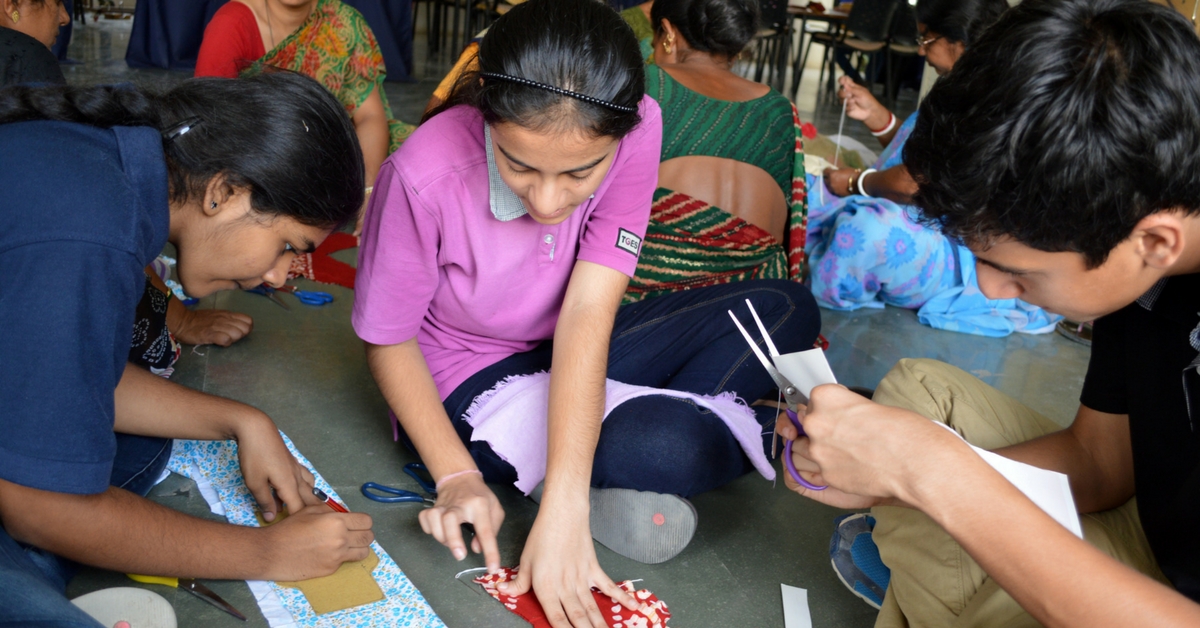
A group of boys and girls at the Galaxy School in Rajkot, Gujarat realised that, even within their close circle, they were uncomfortable discussing the topic of periods openly.
On probing this deep-seated issue, they stumbled across a report by AC Nielsen stating that a mere 12 % of Indian women use pads, while an overwhelming 88 % use unhygienic materials like ash, sand, and husk during their menstruation. Poor menstrual hygiene leads to the spread of infections and risk of cervical cancer, with 70 % of reproductive diseases in India originating from this. This worrying situation bothered the students.
Digging deeper to understand why this is such an issue, the students spoke to 70 women in their community and discovered that many cannot afford to buy pads at all. Most use rags and are ashamed to dry the stained cloth out in the sun, so they end up reusing dirty rags. Some women who can afford to buy pads are ashamed to buy these from shopkeepers. Most of the women were unaware about the possibilities of infection. The word ‘menstruation’ itself was so taboo that they could never speak about it.
Unnerved that a subject that affects nearly half the world’s population is little discussed, the students wanted to help erase this taboo. Knowing that belief systems won’t change overnight – especially those stemming from religious beliefs – they decided to spread awareness through campaigns and workshops, as discussing the topic of personal health would resonate with everybody closely.
Under the mentorship of Sakina Bharmal, the students designed a reusable cloth pad that can easily be made by women at home to target the prevalent issue of affordability.
Through a donation rally at school, they were able to collect waste cloth and towels for the project.
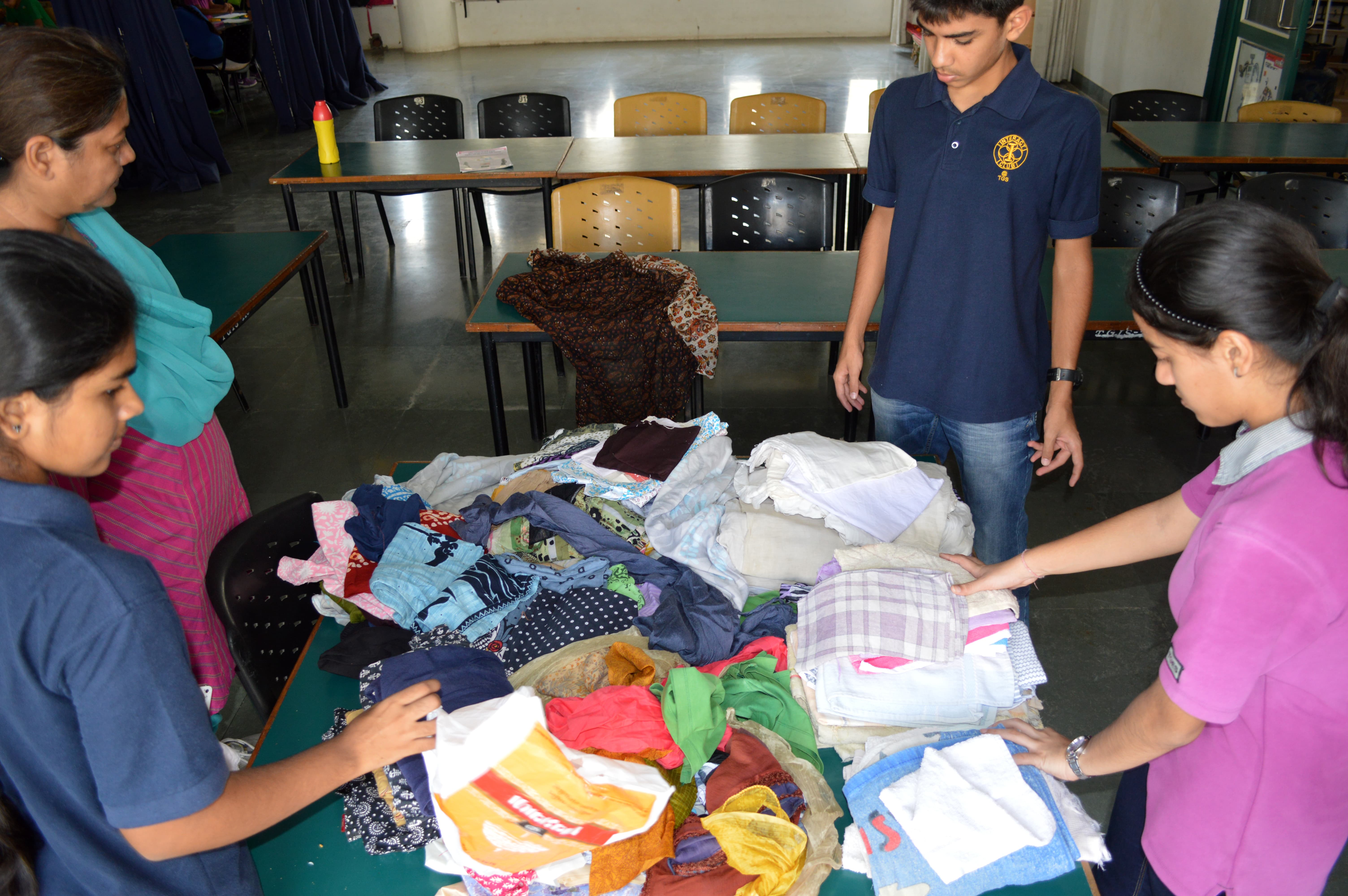
With the help of their art teacher, they made templates for the pads in three different sizes. Unlike normal rags, these have a towel layer between the cotton cloths to soak better and be softer, preventing rashes. While prototyping, the students found that one towel layer between two cotton layers doesn’t absorb well enough, so they tried prototyping again using three layers and tested the product successfully.
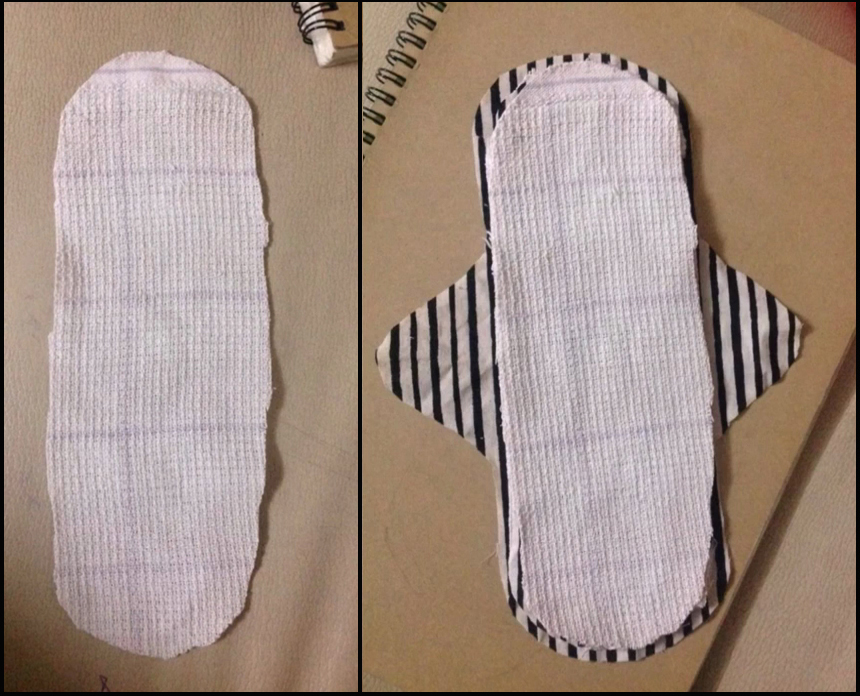
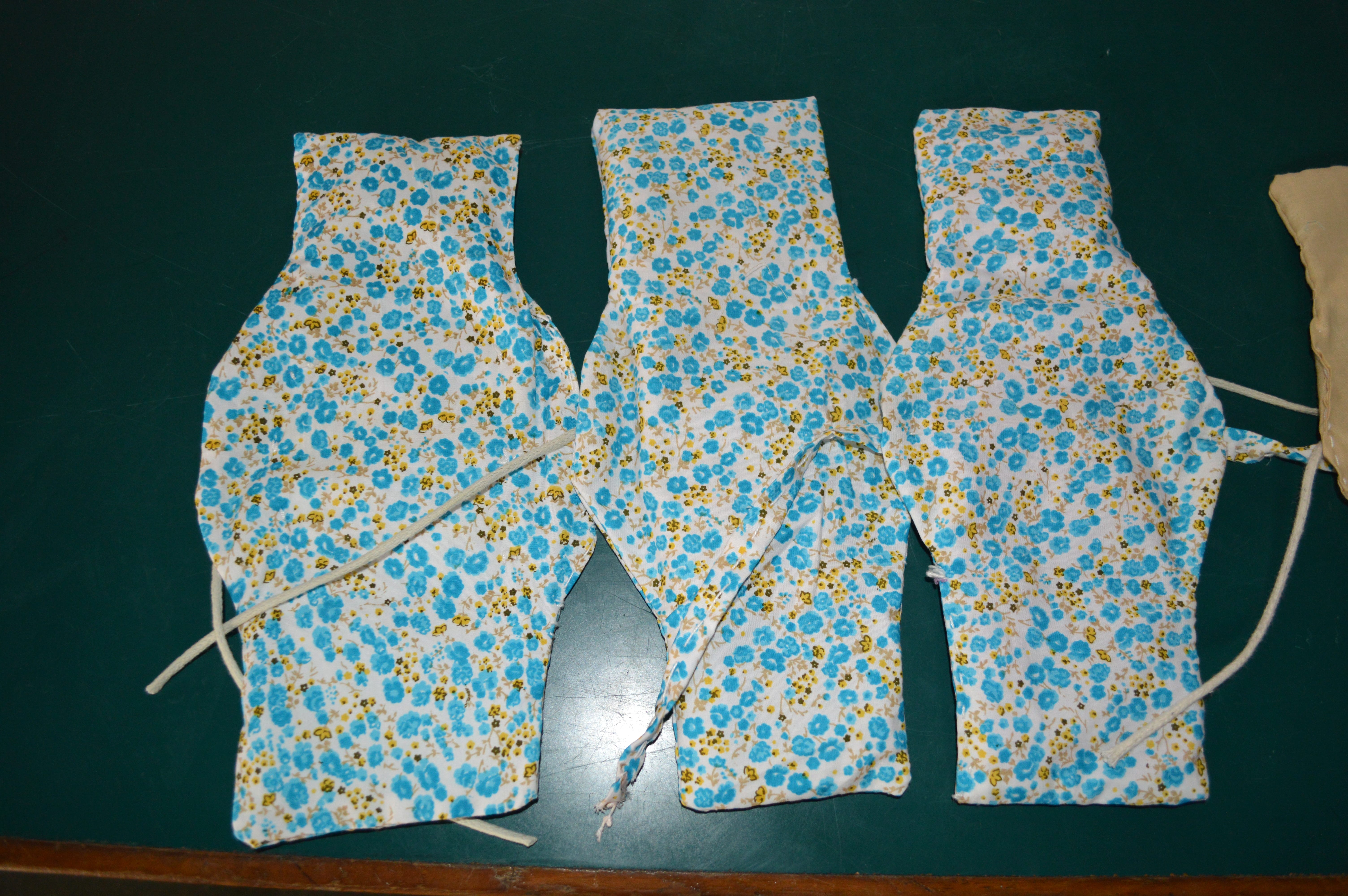
The students made a 5-step manual, in Gujarati and English, to teach women how to make these at home and sterilise them.

They first taught the support staff in their school how to make these pads, and then accompanied them to the Bhaktinagar slum in the city – a community that they were brought into contact with via the social activist Taksh Mishra. After a few such campaigns, the students realised that even the men needed information about the issue. So they encouraged the women to talk to their husbands and parents about menstruation. The students reached out further to more people in the nearby rural communities.
In the process, the students say they learned that change does not happen overnight. To get people to listen to their idea, they had to first build strong connections and garner their trust. The team comprised two girls and two boys – Shayna Shah, Shriya Mehta, Hitarth Raja, and Aashay Rughani. Thus, they had to also overcome their own personal inhibitions in talking about this subject with each other. Initially, the boys were reticent in the workshops as they had inhibitions about speaking about menstruation with the women.
But over time, the women eased their inhibitions and made efforts to listen to them as well.
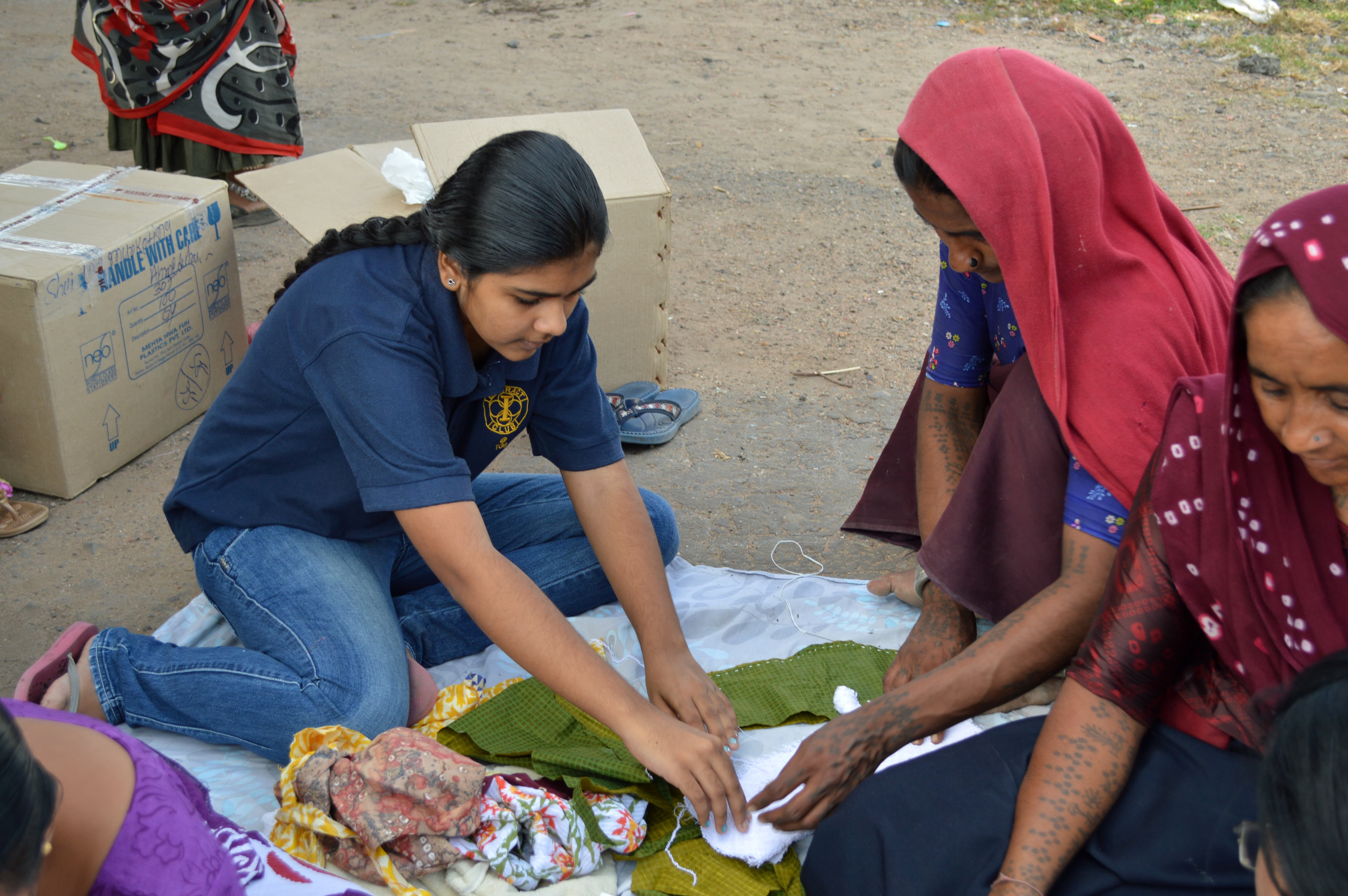
The students also held an awareness campaign to encourage women to openly say, “Yes, I menstruate”. You can watch the full story here:
More students are now conversing with a few manufacturers who can produce low-cost pads, says their mentor Sakina Bharmal. They have two objectives in mind. First, they want to empower the women from rural areas by training them to make and sell these pads. This will help these women become financially independent. Second, the students want to continue to break the social taboo and make these pads affordable.
The project followed the simple 4-step framework of ‘Feel-Imagine-Do-Share’ that has been developed by Design for Change – a not-for-profit organisation that challenges children to solve problems in their community by first ‘feeling’ for an issue, ‘imagining’ a way out of it, ‘doing’ something about it, and then ‘sharing’ their idea with more people. It won the Disney Innovation Award for ‘Large Impact’ at the ‘I CAN Awards 2014’ by Design for Change. It was a nominee amongst the top 25 stories from amongst 1,992 Stories of Change.
Be a part of one of the largest global movements of children driving change in their communities. Take up the ‘I CAN School Challenge’ in your classroom. Find out more online.
Like this story? Or have something to share? Write to us: [email protected], or connect with us on Facebook and Twitter.
NEW: Click here to get positive news on WhatsApp!
If you found our stories insightful, informative, or even just enjoyable, we invite you to consider making a voluntary payment to support the work we do at The Better India. Your contribution helps us continue producing quality content that educates, inspires, and drives positive change.
Choose one of the payment options below for your contribution-
By paying for the stories you value, you directly contribute to sustaining our efforts focused on making a difference in the world. Together, let’s ensure that impactful stories continue to be told and shared, enriching lives and communities alike.
Thank you for your support. Here are some frequently asked questions you might find helpful to know why you are contributing?


This story made me
-
97
-
121
-
89
-
167











